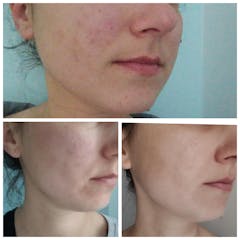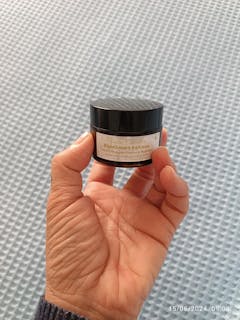Συλλογή: Αλλεργική Αντίδραση
Αλλεργική Αντίδραση: Αιτίες, Συμπτώματα, Θεραπεία και Συμβουλές
*Ενημερώθηκε στις 01 Απριλίου 2024
*Χρόνος ανάγνωσης: 7 λεπτά
Πίνακας Περιεχομένων
- Τι είναι οι αλλεργικές αντιδράσεις;
- Ποια είναι τα συμπτώματα των αλλεργικών αντιδράσεων;
- Πώς διαγνώσκονται οι αλλεργίες;
- Τι είδη αλλεργιών υπάρχουν;
- Πώς μπορούν να διαχειριστούν οι αλλεργικές αντιδράσεις;
- Συμβουλές για την πρόληψη των αλλεργικών αντιδράσεων
- Αλλεργικά προϊόντα που μπορεί να προκαλέσουν αντιδράσεις
- Αλλεργική ανοσοθεραπεία: Πώς λειτουργεί;
- Συχνές Ερωτήσεις
- Περισσότεροι Πόροι
- Λύσεις Φυσικής Φροντίδας για Αλλεργικές Αντιδράσεις
- Σύνδεσμοι για Επιπλέον Ανάγνωση
- Το Προϊόν κατά των αλλεργικών αντιδράσεων
Τι είναι οι αλλεργικές αντιδράσεις;
Οι αλλεργικές αντιδράσεις αποτελούν μια αντίδραση του ανοσοποιητικού συστήματος σε ουσίες που αναγνωρίζει ως εχθρικές για το σώμα, αν και στην πραγματικότητα είναι ακίνδυνες. Το ανοσοποιητικό σύστημα παράγει αντισώματα για να πολεμήσει αυτές τις ουσίες, οδηγώντας σε διάφορα συμπτώματα όπως φαρμακευτικό κνησμό, ερεθισμό και κούραση. Οι αλλεργικές αντιδράσεις μπορούν να εκδηλωθούν σε διάφορα μέρη του σώματος, συμπεριλαμβανομένου του δέρματος, των ματιών, των πνευμόνων, και του γαστρεντερικού συστήματος. Η κατανόηση των αλλεργιών και η αναγνώριση των συμπτωμάτων τους είναι κρίσιμη για τη διαχείριση και την αντιμετώπισή τους. Μέσω ενημερωτικών προσεγγίσεων, μπορούμε να αποκαλύψουμε τα μυστικά των αλλεργικών αντιδράσεων και να προσφέρουμε στον αναγνώστη τα εργαλεία που χρειάζεται για να διαχειριστεί αποτελεσματικά αυτή την πρόκληση.
Mεταβείτε στον πίνακα περιεχομένων
Ποια είναι τα συμπτώματα των αλλεργικών αντιδράσεων;
Τα συμπτώματα των αλλεργικών αντιδράσεων μπορεί να εκδηλωθούν με ποικίλους τρόπους, από ελαφρά έως σοβαρά. Ο κνησμός, ο ερεθισμός του δέρματος και οι αλλεργικές εκδηλώσεις στα μάτια αποτελούν συνήθεις ενδείξεις. Επιπλέον, η ρινική συμφόρηση, η βήχας και οι προβλήματα στην αναπνοή μπορεί να είναι επίσης συχνά συμπτώματα. Σε πιο σοβαρές περιπτώσεις, η αναπνευστική δυσκολία, η αίσθηση πνιγμού και η αναφυσή πυρετού μπορεί να αναπτυχθούν, υποδεικνύοντας μια πιο σοβαρή αντίδραση. Είναι σημαντικό να αναγνωρίζονται αυτά τα συμπτώματα και να λαμβάνονται τα κατάλληλα μέτρα διαχείρισης, προκειμένου να αποτραπεί η επιδείνωση της κατάστασης και να εξασφαλιστεί η ευεργετική αντιμετώπιση των αλλεργιών.
Mεταβείτε στον πίνακα περιεχομένων
Πώς διαγνώσκονται οι αλλεργίες;
Η διάγνωση των αλλεργιών απαιτεί μια ποικιλία μεθόδων και εργαλείων, αλλά η αναγνώριση του προβλήματος αποτελεί το πρώτο βήμα για την αντιμετώπισή του. Οι αλλεργίες μπορούν να διαγνωστούν μέσω αλλεργικών δοκιμών δέρματος, όπως οι δερματικές δοκιμές με αλλεργιογόνα, καθώς και μέσω αίματος για την ανίχνευση αντισωμάτων. Οι κλινικές συμπτωματικές δοκιμές και η ιστορική ανάλυση των συμπτωμάτων αποτελούν επίσης σημαντικά εργαλεία. Είναι σημαντικό να σημειωθεί ότι η διάγνωση αλλεργιών απαιτεί εξειδικευμένη επιστημονική γνώση και εμπειρία από εξειδικευμένους ειδικούς στον τομέα. Με την ακριβή διάγνωση, οι ασθενείς μπορούν να λάβουν την κατάλληλη θεραπεία και διαχείριση των αλλεργιών τους, επιτρέποντας τους να απολαύσουν μια υγιή και άνετη ζωή.
Mεταβείτε στον πίνακα περιεχομένων
Τι είδη αλλεργιών υπάρχουν;
Οι αλλεργίες μπορούν να προκαλούνται από μια ευρεία γκάμα ουσιών και παραγόντων που είναι παρόντες στο περιβάλλον μας καθημερινά. Κάποια από τα κοινά αλλεργιογόνα περιλαμβάνουν τη σκόνη, την πολλαπλασιαστική βακτηριδίωση, τα μούχλες, το σκόρο των ζώων, τα τρόφιμα όπως το γάλα, το φιστικοβούτυρο και τα αυγά, καθώς και φάρμακα όπως οι αντιβιοτικοί και τα αντιφλεγμονώδη. Ωστόσο, και άλλες πηγές αλλεργιών είναι τα εντομοκτόνα, τα μέταλλα και τα χημικά προϊόντα. Είναι σημαντικό να κατανοήσουμε την ποικιλία αυτών των αλλεργιογόνων για να μπορέσουμε να προστατευτούμε από τυχόν επιπτώσεις και να αντιμετωπίσουμε αποτελεσματικά τις αλλεργικές αντιδράσεις.
Mεταβείτε στον πίνακα περιεχομένων
Πώς μπορούν να διαχειριστούν οι αλλεργικές αντιδράσεις;
Η αποτελεσματική διαχείριση των αλλεργικών αντιδράσεων απαιτεί μια συνειδητή προσέγγιση και τη λήψη συγκεκριμένων μέτρων. Πρώτον, η αποφυγή των αλλεργιογόνων ουσιών αποτελεί τον πιο αποτελεσματικό τρόπο πρόληψης. Επιπλέον, η χρήση αντισταθμιστικών φαρμάκων όπως αντιισταμινικά, βρογχοδιασταλτικά ή αντιφλεγμονώδη μπορεί να βοηθήσει στην ανακούφιση των συμπτωμάτων. Επιπλέον, η ανοσοθεραπεία μπορεί να χρησιμοποιηθεί για τη μείωση της ανοσολογικής αντίδρασης σε συγκεκριμένα αλλεργιογόνα. Σημαντικό είναι επίσης η ενημέρωση και η εκπαίδευση των ατόμων με αλλεργίες και των γύρω τους, προκειμένου να αντιμετωπίζουν σωστά τις καταστάσεις έκτακτης ανάγκης. Με την κατάλληλη γνώση και τα μέσα διαχείρισης, οι αλλεργικές αντιδράσεις μπορούν να διαχειριστούν αποτελεσματικά, επιτρέποντας στα άτομα που τις αντιμετωπίζουν να ζουν μια πιο άνετη και ασφαλή ζωή.
Mεταβείτε στον πίνακα περιεχομένων
Συμβουλές για την πρόληψη των αλλεργικών αντιδράσεων
Η πρόληψη των αλλεργικών αντιδράσεων είναι ζωτικής σημασίας για τη βελτίωση της ποιότητας ζωής ατόμων με αλλεργίες. Μια καίρια συμβουλή είναι η αποφυγή των αλλεργιογόνων, όπως η σκόνη, το κατοικίδιο το οποίο προκαλεί αλλεργίες, και η επαφή με αλλεργιογόνα τρόφιμα. Επίσης, είναι σημαντικό να διατηρείτε καθαρό και ευαερισμένο το περιβάλλον σας, να χρησιμοποιείτε υποαλλεργικά καθαριστικά και να αποφεύγετε το κάπνισμα. Επιπλέον, να ενημερώνεστε για τα προϊόντα που προκαλούν αλλεργικές αντιδράσεις και να διατηρείτε τακτική επαφή με τον γιατρό σας για να διαχειριστείτε τις αλλεργίες σας αποτελεσματικά. Με την εφαρμογή αυτών των συμβουλών, μπορείτε να μειώσετε σημαντικά τον κίνδυνο εμφάνισης αλλεργικών αντιδράσεων και να απολαύσετε μια υγιή και άνετη ζωή.
Mεταβείτε στον πίνακα περιεχομένων
Αλλεργικά προϊόντα που μπορεί να προκαλέσουν αντιδράσεις
Υπάρχει μια ευρεία γκάμα προϊόντων που μπορεί να προκαλέσουν αλλεργικές αντιδράσεις σε ευαίσθητα άτομα. Ανάμεσά τους περιλαμβάνονται τρόφιμα όπως το γάλα, τα αυγά, τα φιστίκια, οι γαρίδες και το σιτάρι, καθώς και παράγοντες που βρίσκονται στο περιβάλλον, όπως η σκόνη, το σκόρο των ζώων και οι μούχλες. Επιπλέον, προϊόντα ομορφιάς και προσωπικής φροντίδας, όπως κρέμες και λοσιόν σώματος, αρώματα και αντηλιακά, επίσης μπορεί να περιέχουν συστατικά που προκαλούν αλλεργικές αντιδράσεις. Είναι σημαντικό για τα άτομα με αλλεργίες να είναι ενήμερα για τα προϊόντα αυτά και να ελέγχουν προσεκτικά τη σύνθεση πριν τη χρήση τους, προκειμένου να αποφεύγονται πιθανές ανεπιθύμητες αντιδράσεις και να διασφαλίζεται η ασφάλειά τους.
Mεταβείτε στον πίνακα περιεχομένων
Αλλεργική ανοσοθεραπεία: Πώς λειτουργεί;
Η αλλεργική ανοσοθεραπεία αναπτύσσεται πάνω στην ιδέα της αντιμετώπισης της υπερβολικής αντίδρασης του ανοσοποιητικού συστήματος σε αλλεργιογόνα. Αυτή η θεραπεία περιλαμβάνει την εισαγωγή μικρών ποσοτήτων του αλλεργιογόνου στον οργανισμό με σκοπό τη μείωση της ανοσολογικής απόκρισης. Στη συνέχεια, η δόση αυτή αυξάνεται σταδιακά, ενώ παράλληλα παρατηρείται η ανάπτυξη ανοσολογικής ανοχής προς το αλλεργιογόνο. Η διαδικασία αυτή μπορεί να διαρκέσει από μερικούς μήνες έως και αρκετά χρόνια, ανάλογα με τον ασθενή και το είδος της αλλεργίας. Παρόλο που απαιτεί υπομονή και συνεπή συμμόρφωση, η αλλεργική ανοσοθεραπεία έχει αποδειχθεί αποτελεσματική στη μείωση της σοβαρότητας των αλλεργικών αντιδράσεων και στη βελτίωση της ποιότητας ζωής ατόμων με χρόνιες αλλεργίες.
Mεταβείτε στον πίνακα περιεχομένων
Συχνές Ερωτήσεις
Η ενότητα "Συχνές Ερωτήσεις" είναι εδώ για να λύσει κάθε απορία σας γύρω από τις αλλεργικές αντιδράσεις, προσφέροντάς σας πλούσιες πληροφορίες και απαντήσεις από ειδικούς. Ανακαλύψτε τα πάντα για τις αιτίες, τα συμπτώματα, τις αποτελεσματικές θεραπείες και τους τρόπους πρόληψης.
Ποιες είναι οι κύριες αιτίες αλλεργικών αντιδράσεων;
Οι αλλεργικές αντιδράσεις είναι αποτέλεσμα της υπεραντίδρασης του ανοσοποιητικού συστήματος σε εξωτερικές ουσίες που είναι κατά τα άλλα αβλαβείς, όπως οι σκόνες, οι τροφές, οι φύτρες και οι κατοικίδιοι.
Ποια είναι τα πιο συνηθισμένα συμπτώματα αλλεργιών;
Τα συμπτώματα μπορεί να περιλαμβάνουν κνησμό, καταρροή, δερματική ερεθισμό, πονόλαιμο, δυσκοιλιότητα, ερυθήματα και πρήξιμο του προσώπου.
Πώς διαφοροποιούνται οι αλλεργικές αντιδράσεις από την ανοσοθεραπεία;
Οι αλλεργικές αντιδράσεις είναι υπερβολικές αντιδράσεις του ανοσοποιητικού συστήματος, ενώ η ανοσοθεραπεία στοχεύει στη μείωση της ανοσολογικής απόκρισης.
Υπάρχουν προληπτικά μέτρα που μπορούν να ληφθούν για την αποφυγή αλλεργικών αντιδράσεων;
Ναι, μερικά από αυτά περιλαμβάνουν την αποφυγή εκθέσεων σε γνωστούς αλλεργιογόνους, τη χρήση φαρμάκων όπως αντισταμινικά και την αναζήτηση ιατρικής συμβουλής.
Πώς μπορούν να διαχειριστούν αποτελεσματικά οι αλλεργικές αντιδράσεις;
Η διαχείριση μπορεί να περιλαμβάνει την αποφυγή των αλλεργιογόνων, τη χρήση φαρμάκων για την ανακούφιση των συμπτωμάτων και, σε ορισμένες περιπτώσεις, την αλλεργιοστατική θεραπεία.
Mεταβείτε στον πίνακα περιεχομένων
Περισσότεροι Πόροι
Εάν επιθυμείτε να εμβαθύνετε στο θέμα των αλλεργικών αντιδράσεων ή να βρείτε περισσότερες πληροφορίες σχετικά με τη διαχείρισή τους, παρακάτω θα βρείτε μερικούς συνδέσμους για επιπλέον ανάγνωση:
- American Academy of Allergy, Asthma, and Immunology
- Mayo Clinic - Allergies
- National Institute of Allergy and Infectious Diseases (NIAID)
- World Allergy Organization
Αυτοί οι σύνδεσμοι θα σας παρέχουν περαιτέρω πληροφορίες και πόρους για να κατανοήσετε και να διαχειριστείτε τις αλλεργικές αντιδράσεις με επιτυχία.
Mεταβείτε στον πίνακα περιεχομένων
Λύσεις Φυσικής Φροντίδας για Αλλεργικές Αντιδράσεις
Η κηραλοιφή τσιμπημάτων εντόμων "Κνησμός - Αλλεργία" αποτελεί ένα από τα πρωτοποριακά προϊόντα μας που προσφέρουν φυσική ανακούφιση από τις αλλεργικές αντιδράσεις του δέρματος. Η σύνθεσή της, που περιλαμβάνει μελισσοκέρι, αχιλλέα, παρθένο ελαιόλαδο, λεβάντα, μέντα και λεμόνι, βασίζεται σε φυσικά συστατικά με γνωστές και αντιαλλεργικές ιδιότητες. Αυτή η ειδική σύνθεση αποσκοπεί στην αποκατάσταση του δέρματος μετά από τσιμπήματα εντόμων, παρέχοντας ανακούφιση από τον κνησμό και την αλλεργική αντίδραση. Με την εφαρμογή της κηραλοιφής "Κνησμός - Αλλεργία", οι πελάτες μας μπορούν να απολαύσουν τα οφέλη της φύσης με ένα προϊόν που προσφέρει αποτελεσματική φροντίδα για την επιδερμίδα τους, χωρίς τη χρήση συνθετικών ή ερεθιστικών συστατικών.
Mεταβείτε στον πίνακα περιεχομένων
Σύνδεσμοι για Επιπλέον Ανάγνωση
Για περαιτέρω ανάγνωση και πληροφορίες σχετικά με τις θεματικές συλλογές και τις πληροφορίες σχετικά με τις παθήσεις, επισκεφθείτε την σελίδα Όλες οι Παθήσεις στον ιστότοπό μας. Εκεί θα βρείτε μια ευρεία γκάμα θεμάτων με πληροφορίες, συμπτώματα, διαγνωστικά κριτήρια και επιλογές θεραπείας για κάθε πάθηση που σας ταλαιπωρεί. Επιπλέον, για περισσότερες πληροφορίες σχετικά με τα προϊόντα και τις υπηρεσίες μας, μπορείτε να επισκεφθείτε τη σελίδα αρχική σελίδα μας. Ανακαλύψτε τον κόσμο του φυσικού Φαρμακείου και βρείτε εξειδικευμένες λύσεις για την υγεία σας σήμερα. Επιπλέον, μπορείτε να επικοινωνήσετε μαζί μας είτε μέσω της σελίδας επικοινωνίας μας, είτε τηλεφωνικά στο +306949699484.
Mεταβείτε στον πίνακα περιεχομένων
Λέξεις-κλειδιά: Αλλεργίες, Αλλεργικές αντιδράσεις, Συμπτώματα αλλεργιών, Διατροφή για αλλεργικές αντιδράσεις, Ανοσοποίηση αλλεργιών, Αλλεργικά προϊόντα, Αλλεργιολόγος, Αλλεργικές εξετάσεις, Αλλεργική ρινίτιδα, Αλλεργικές αντιδράσεις στο δέρμα
Το Προϊόν κατά των αλλεργικών αντιδράσεων
-
Κηραλοιφή Τσιμπήματα Εντόμων Κνησμός & Αλλεργία 30ml (#35)
![Αντιμετωπίστε τα τσιμπήματα εντόμων και τις αλλεργίες με την Κηραλοιφή μας. Επισκεφθείτε τη σελίδα μας για να μάθετε περισσότερα - VAITSI COSMETICS]()
- Προμηθευτή
- Vaitsi Cosmetics
- Κανονική τιμή
-
€18,00 - Τιμή πώλησης
- €14,00
- Τιμή μονάδας
- ανά






